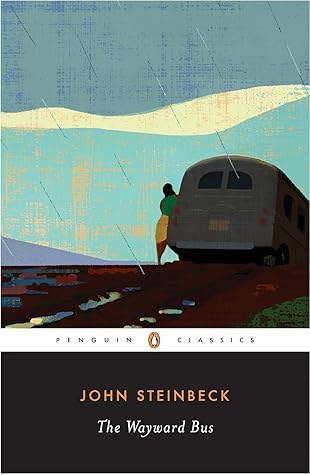Ahead and down the hill to the left, in an indentation of the foothills, he saw a house and a barn and a windmill with the blades broken and hanging.
Ahead and down the hill to the left, in an indentation of the foothills, he saw a house and a barn and a windmill with the blades broken and hanging. That would be the old Hawkins place. Just the set-up he’d been thinking about. He would go in there, maybe in the house, but more likely in the barn. An old barn is usually cleaner than an old house. There was bound to be a little hay or straw in the barn. Juan would crawl in there and sleep. He wouldn’t think about anything. He would sleep until maybe this time tomorrow, and then he’d walk on to the county road and pick up a ride. What difference did it make to him about the passengers? “They can’t starve. It won’t hurt them at all. It’ll be good for them. It isn’t any business of mine.”
He hurried his steps down the hill toward the old Hawkins place. They’d look for him. Alice would think he was murdered and she’d call in a sheriff. Nobody ever thought he’d run off like this. That’s what made it such a good joke. Nobody thought he could do it. Well, he’d show them. Get to San Diego, cross the border, pick up the mail truck to La Paz. Alice would have the cops out.
He stopped and looked back at the road. His footprints were clear enough, but the rain would probably wash them out, and he could cover his tracks if he wanted to. He turned in off the road toward the Hawkins place.
The old house had gone to pieces very quickly once it was abandoned. A few wandering boys broke out the windows and stole the lead pipe and the plumbing, and the doors soon banged themselves silly and fell off their hinges. The old dark wallpaper, pulled down under wind-driven rain, revealed under-sheets made from old newspapers with old cartoons—“Foxy Grandpa” and “Little Nemo” and “Happy Hooligan” and “Buster Brown.”9 Tramps had been there and had left their litter and burned the door casings in the old black fireplace. The smell of desertion and damp and sourness was in the house. Juan looked in the doorway, walked through and smelled the odor of the vacant house, and went out the back door toward the barn.
The corral fence was down and the big door off, but inside the barn smelled fresh. The stalls were polished where the horses had rubbed against the wood. The corners were cobwebbed. Between the manure windows were still the candleboxes with the worn brushes and rusty currycombs. And an old collar and hames and a set of tugs hung on a rack beside the door. The leather of the collar was split and the padding stuck out.
The barn had no loft. The whole central part had been used to store hay. Juan walked around the end of the last stall. It was dusky inside and the light of the sky lanced through broken shakes in the roof. The floor was covered with short straw, dark with age, and with a slightly musty smell. Standing still in the entrance, Juan could hear the squeaking of mice and he could smell the colonies of mice too. From a rafter two cream-colored barn owls looked down at him and then closed their yellow eyes again.
The rain had diminished so that there was only a faint put tering on the roof. Juan went to a corner and with his foot kicked aside a layer of the dusty top straw. He sat down and then lay back and thrust his hands behind his head. The barn was alive with secret little sounds, but Juan was very tired. His nerves itched and he felt mean. He thought perhaps if he slept he would feel better.


